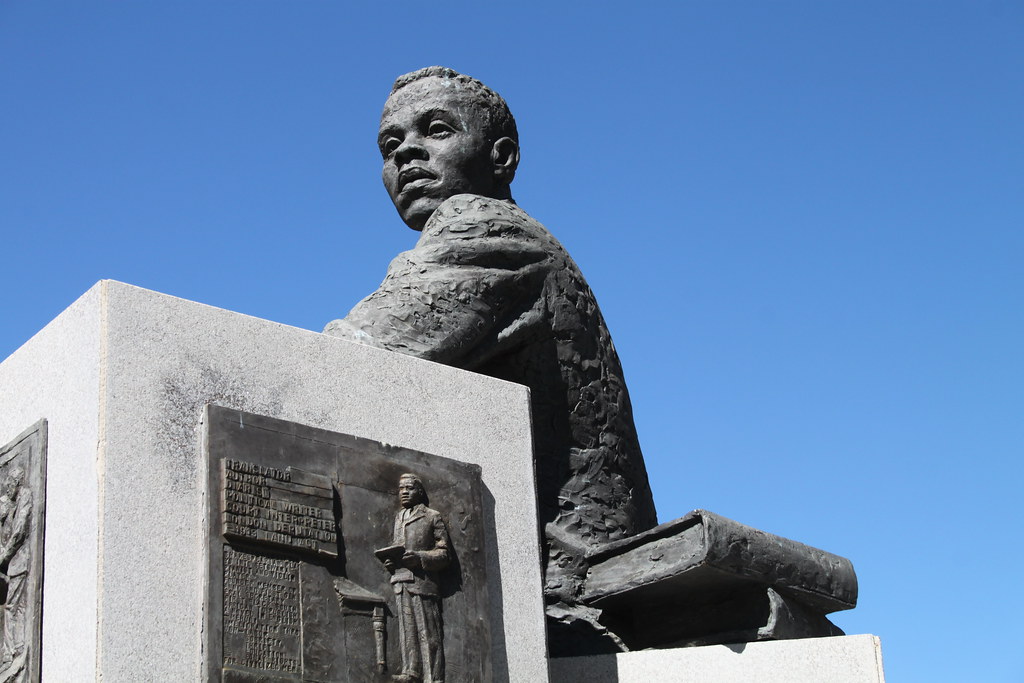Danie van der Lith
ONCE a thriving hub of community engagement and scenic charm, the Ernest Oppenheimer Memorial Gardens in Kimberley had, for years, become a shadow of its former self. But thanks to the vision and revitalisation efforts of Sol Plaatje University (SPU), the Gardens are on the cusp of a remarkable transformation, one that speaks to both the city’s deep-rooted heritage and its bright, inclusive future.
The development forms part of SPU’s broader role in reinvigorating the Kimberley CBD. Since its establishment, the University has injected new life into a city centre that many feared was in terminal decline.
Through state-of-the-art infrastructure, employment creation, and consistent community engagement, SPU has not only boosted Kimberley’s economy but has also reshaped social interactions and sparked a new sense of urban renewal.
Perhaps the most emotive and symbolic element of this urban revival is the University’s purchase and planned transformation of the historic Ernest Oppenheimer Memorial Gardens.
A rich, complex history
The Gardens were first opened in December 1961 by Harry Oppenheimer, in honour of his father, Sir Ernest Oppenheimer, founder of Anglo American and a former mayor of Kimberley. The Gardens occupy the site of the old Malay Camp, a once-thriving community area that evolved during Kimberley’s early mining days.
Originally populated by tents and makeshift shelters, the Malay Camp eventually saw more permanent structures emerge, including mosques, churches, schools, and even a police station. However, when De Beers donated the land to the city in 1939, it was on the condition that a “slum clearance” be conducted to create a public park. In the process, the Malay Camp was largely erased, leaving behind only memories for those who had once called it home.
Over time, the Gardens themselves became a much-loved communal space, with the Diggers Fountain, depicting five life-sized miners lifting a diamond sieve, and a bronze bust of Sir Ernest Oppenheimer standing proudly at its heart. The site was a popular location for Sunday picnics, family photographs, and a sense of civic pride.
But years of neglect took their toll. The diamond sieve disappeared from the fountain, the bust of Sir Ernest was stolen and later replaced, and the gardens grew into a state of disrepair, a forgotten green space once central to Kimberley’s urban identity.
A new chapter begins
In April 2021, Sol Plaatje University entered into negotiations with the Sol Plaatje Local Municipality to acquire the Gardens. Public objections to the sale soon followed, largely based on the site’s historical significance. After extensive consultations, the sale was finally concluded in September 2023, and by February 2024, SPU formally took ownership.
But the University is not just reviving the Gardens, it’s reimagining them for the 21st century.
Central to the redevelopment is the construction of a
Great Hall
and the ambitious creation of a
Botanical Garden
, envisioned as an open-air academic laboratory for SPU’s Faculty of Natural and Applied Sciences.
The University anticipates that the space will be accredited by the South African Biodiversity Institute (SANBI) as the country’s 10th official botanical garden, a major milestone for the institution and the province.
In addition to academic use, the garden will serve as a public space, accessible by arrangement for exhibitions, book clubs, open-air theatres, and live music.
In doing so, SPU hopes to honour the cultural and communal role the Gardens once played while positioning them as a beacon of inclusive urban rejuvenation.
Closing the Gardens for restoration
To facilitate these upgrades, the Gardens will temporarily close for refurbishment. Infrastructure improvements already underway include the installation of surveillance cameras, Wi-Fi access points, upgraded lighting, a new irrigation system, and modern pump houses, all critical to supporting the future Botanical Garden.
Until then, the public can still access the Gardens daily from 8:00 to 18:00, with no entry permitted after 17:00.
Once renovations are complete, a more regulated public access schedule will be implemented to ensure alignment with the University’s academic and community-focused objectives.
A city renewed
The Ernest Oppenheimer Memorial Gardens redevelopment is far more than a beautification project; it’s a symbol of Kimberley’s past, present, and future.
Through thoughtful restoration and purposeful repurposing, SPU is restoring a cherished communal space while creating a hub for learning, leisure, and cultural exchange.
In doing so, the University is not only preserving the legacy of one of the city’s most historically significant sites but also contributing meaningfully to the social and spatial transformation of Kimberley’s inner city.
As the Gardens start to blossom once again, they promise to become a place where history, community, and innovation converge, reminding Kimberley residents that from old roots, new life can grow.
Provided by SyndiGate Media Inc. (
Syndigate.info
).











